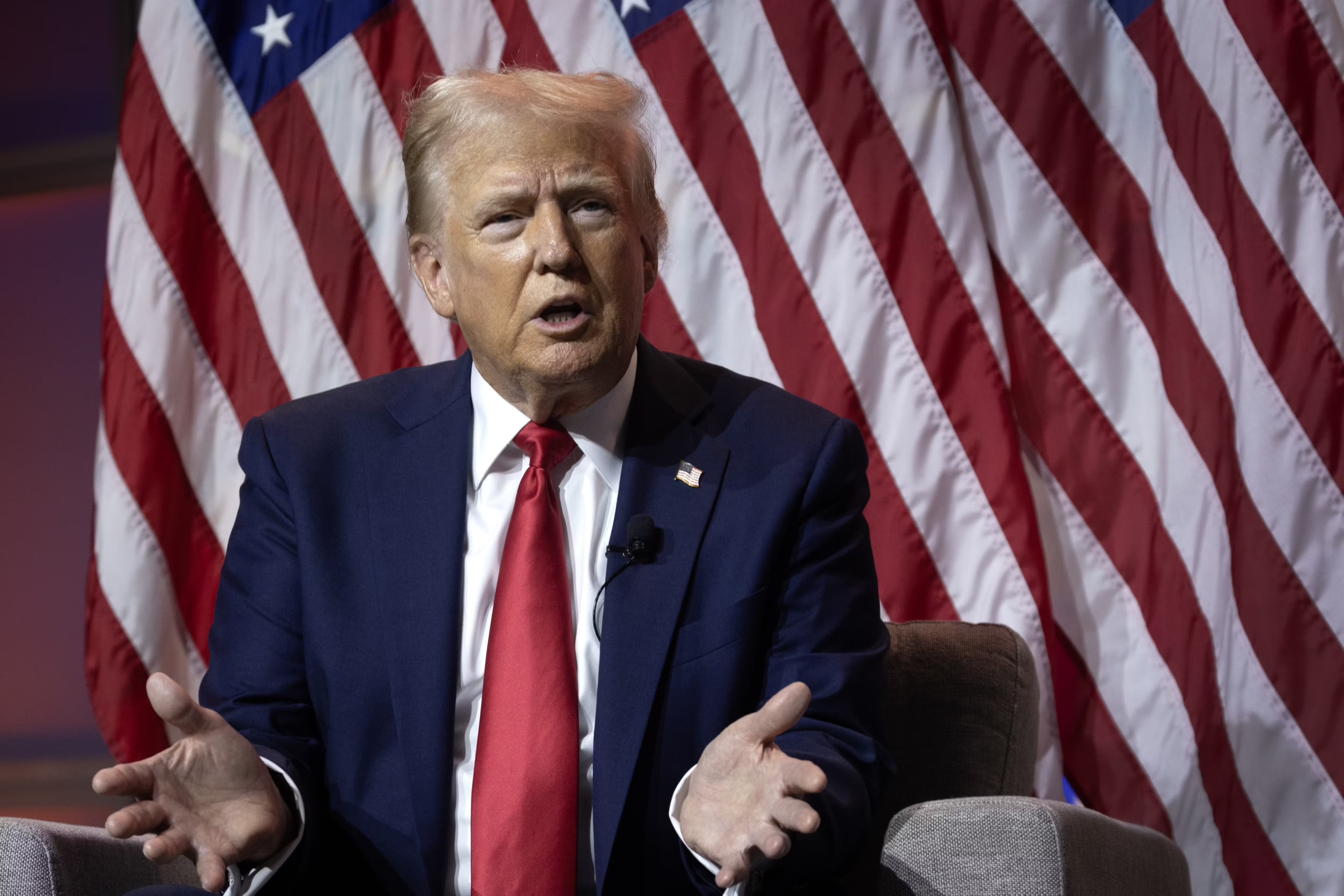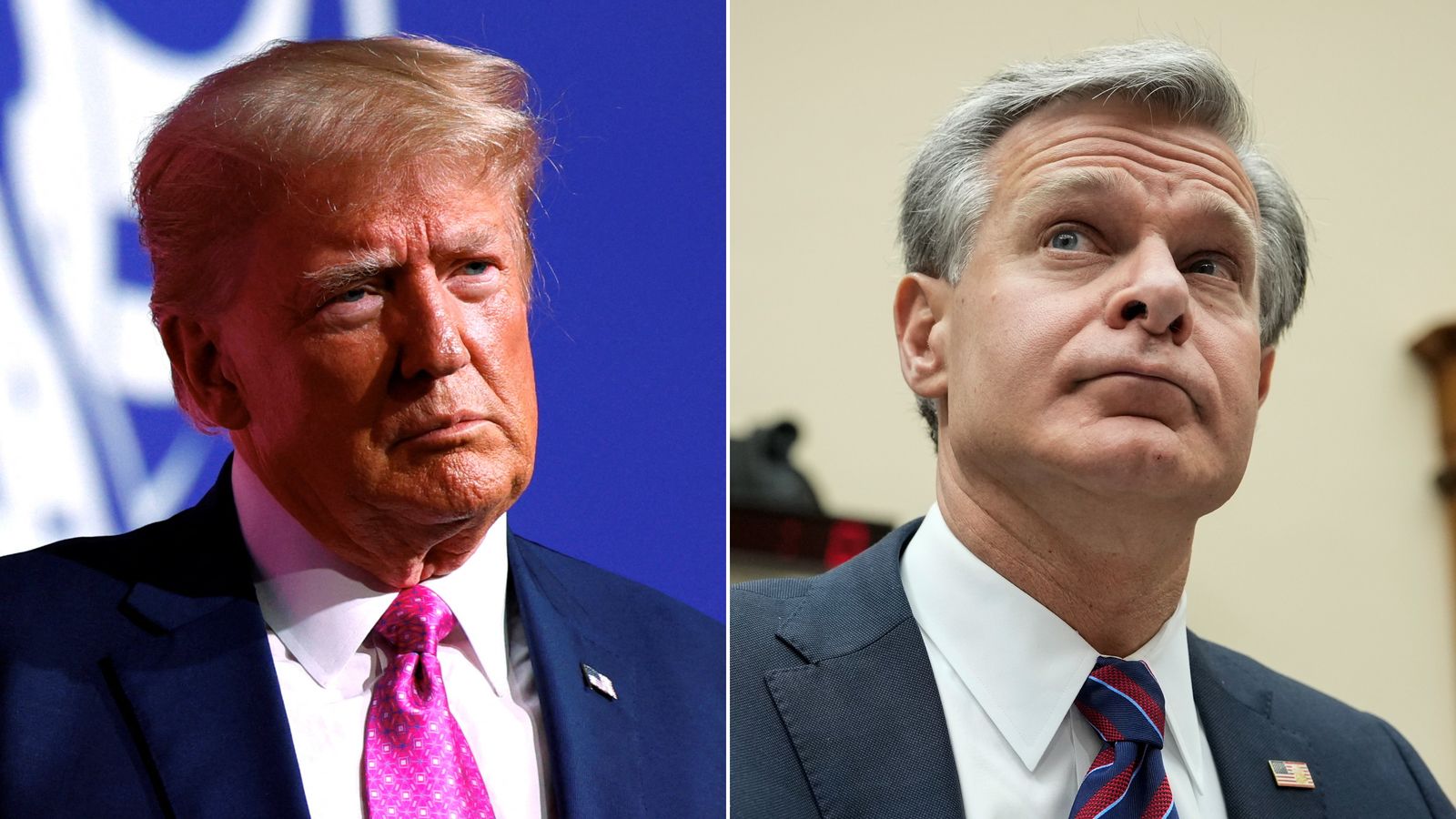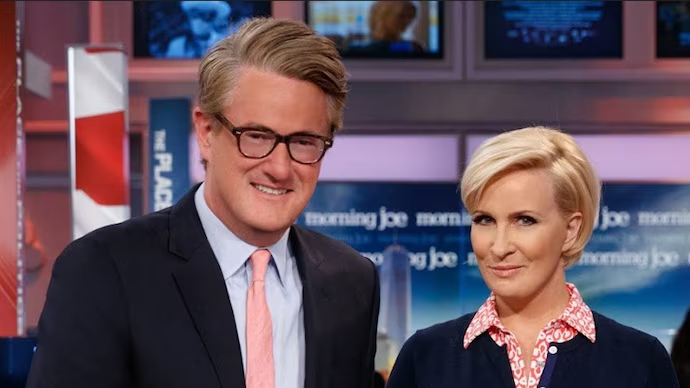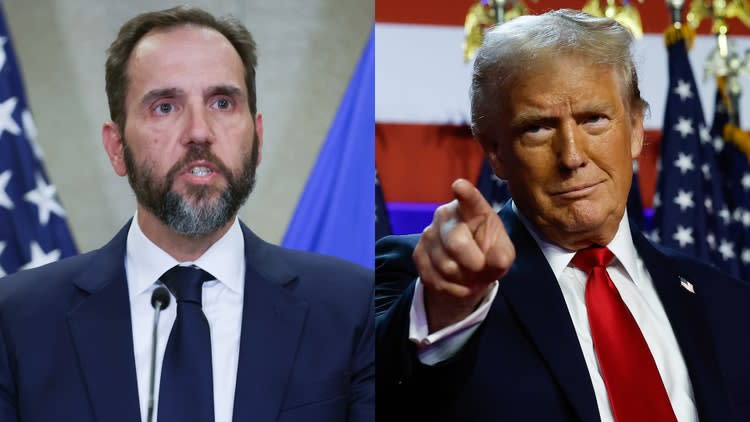Former President Donald Trump Wednesday launched a scathing attack on Minnesota Governor Tim Walz, claiming that a potential Democratic ticket featuring Walz and Vice President Kamala Harris would swiftly transform the United States into a communist state.
These comments, made during a rally, have ignited a fresh wave of controversy and discussion among political commentators and the public alike.
“There’s never been a ticket like this,” Trump, 78, said during an appearance on Fox News’ “Fox & Friends” after Harris chose the Minnesota governor as her running mate.
“This is a ticket that would want this country to go communist immediately, if not sooner.”
The Republican presidential candidate trashed his Democratic rivals just hours after Elon Musk, too, slammed Harris — calling her “quite literally a communist” in a post on X.
Trump’s remarks reflect a broader concern among conservatives about the trajectory of the Democratic Party. The former president’s statement resonates with a faction of the electorate that fears a significant shift towards socialism under a Democratic administration. Trump’s comments are likely aimed at mobilizing his base by highlighting perceived threats to American values and economic systems.
The former president’s critique of Walz extends beyond political ideology. Trump has repeatedly lambasted the Minnesota governor’s handling of the COVID-19 pandemic and the civil unrest that followed the death of George Floyd. Trump claimed, “Walz couldn’t handle Minnesota; imagine what he would do to the whole country” .
Also in the interview, Trump took aim at Walz — a darling of the far left — and insisted he was “thrilled” that the Democrats had picked a progressive candidate to complete their presidential ticket.
“He’s a very, very liberal man,” the former commander-in-chief said. “He’s a shocking pick and I’m thrilled. I could not be more thrilled.”
“If you look at his record — with no walls, no security, let everybody in — he’s worse than they are. You know, nobody knew how radical left she was, but he’s a smarter version of her,” Trump added, referring to Harris.
“If you want to know the truth, he’s probably about the same as Bernie Sanders. He’s probably more so than Bernie Sanders. She is more so than Bernie Sanders. That’s got to be your guide, Bernie Sanders, and that’s not a great guide.”
Governor Walz, a former member of Congress and a military veteran, has been a prominent figure in Minnesota politics for years. His tenure has been marked by efforts to expand healthcare access, improve education, and address climate change. However, his administration has also faced criticism, particularly from conservative circles, for its handling of the state’s economic policies and public safety issues.
Trump’s targeting of Kamala Harris in his comments is also noteworthy. As Vice President, Harris has often been a lightning rod for conservative criticism, particularly regarding her stances on immigration, criminal justice reform, and healthcare. Trump’s assertion that a Harris-Walz ticket would lead to a communist America is emblematic of his broader strategy to paint the Democratic leadership as radical and out of touch with mainstream American values.
The rhetoric used by Trump is not new in American politics. Throughout his political career, he has frequently employed hyperbolic language to underscore his points and galvanize his supporters. The claim that a Democratic administration would lead to communism is a continuation of his strategy to frame the political opposition in the starkest possible terms.
Political analysts suggest that Trump’s comments are part of a broader strategy to undermine the credibility of potential Democratic contenders in the 2024 presidential election. By portraying Walz and Harris as extreme leftists, Trump aims to rally his base and sway undecided voters who might be wary of significant policy shifts under a Democratic administration.
Despite the heated rhetoric, it is essential to contextualize Trump’s claims within the broader political landscape. The United States, with its robust system of checks and balances, is unlikely to shift dramatically towards communism or any other extreme ideology regardless of the party in power. However, Trump’s comments do tap into genuine concerns among a segment of the population about the direction of the country.
Conservatives argue that the policies advocated by Walz and Harris would lead to increased government control over various aspects of life, from healthcare to education to the economy. They believe that such measures would stifle individual freedoms and economic innovation, ultimately harming the country’s prosperity and global standing.
In response to Trump’s remarks, Democratic supporters of Walz and Harris argue that their policies are designed to address systemic inequalities and improve the quality of life for all Americans. They contend that Trump’s accusations are unfounded and serve only to deepen political divisions in an already polarized society.
As the political landscape evolves, the discourse around the potential Democratic ticket and its implications for the country will undoubtedly continue to be a focal point of debate. Trump’s comments have once again brought to the forefront the stark ideological divide that characterizes modern American politics.





